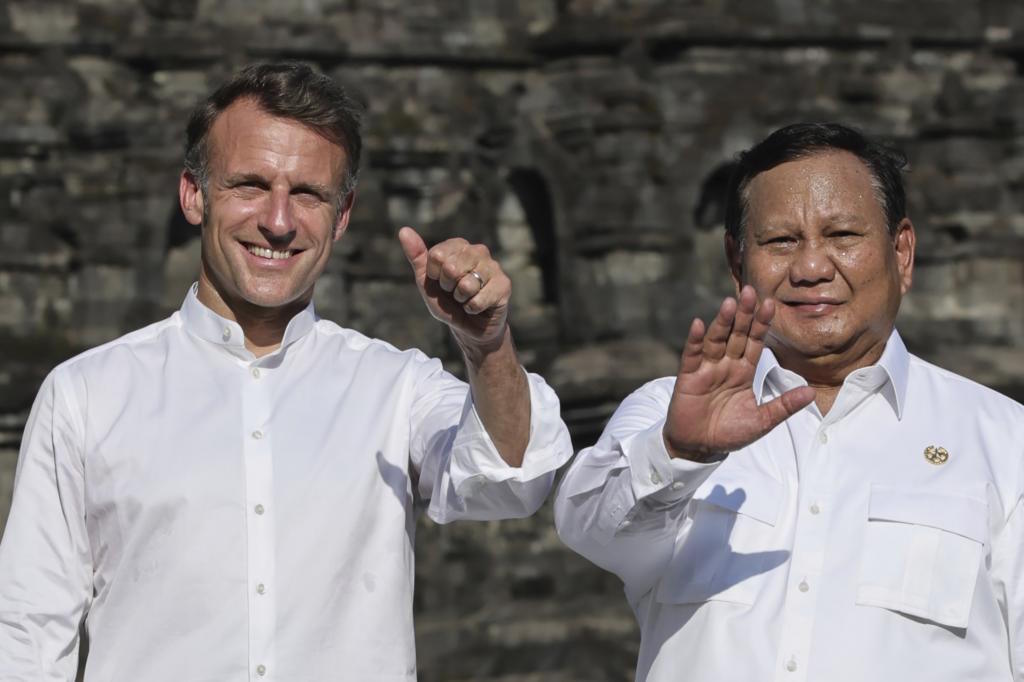From Singapore, the final stop on Emmanuel Macron's Southeast Asian tour, the French president took a jab at the United States regarding its relationship with Russia. He stated that if Moscow refuses a ceasefire in Ukraine, the new sanctions are a "test of credibility" for Washington.
"If Russia is not willing to achieve peace, the US must confirm its commitment to sanction Moscow," Macron declared. "I spoke with President Trump 48 hours ago, who expressed his impatience. The question now is: what do we do about it? We are ready," he continued, referring to European leaders during a press conference held with Singaporean Prime Minister Lawrence Wong.
Macron will conclude his Asian tour by delivering the opening speech at the Shangri-La Dialogue, the major Asia-Pacific military forum that starts at night in the city-state and will bring together ministers of defense, generals, and senior officials from 47 countries until Sunday. This annual event, organized by the International Institute for Strategic Studies (IISS), a London-based think tank, has been held for 23 years to discuss security challenges in the region. The main novelty this year will be the presence of Macron and Kaja Kallas, the EU's foreign policy chief.
In recent years, the forum has garnered international attention as one of the few platforms where military leaders from the two superpowers, the United States and China, meet. Representing Washington in Singapore is Defense Secretary Pete Hegseth, who will make his first statements on Saturday about the security policy the Trump administration will follow in the region. US officials have indicated that Hegseth's purpose will be to convince his Asian counterparts that the US is a much more reliable partner than China. A message that does not convince the majority of Asian delegations, who are equally or more concerned about Trump's trade war and unpredictable diplomacy than China's assertiveness in hotspots like Taiwan or the disputed islands in the South China Sea.
China has been gaining ground on Washington in the region, leaving behind the years when the now feared People's Liberation Army (PLA) was ill-prepared for combat and had outdated weaponry. The Chinese military is the world's largest in terms of active personnel, surpasses the US in warships, and has deployed hypersonic missiles and state-of-the-art fighters.
During the Shangri-La Dialogue, attendees will discuss China's increased military presence in the region. Unlike other years, Beijing has not sent its Defense Minister to the forum. The Chinese delegation consists of senior military officials who will hold meetings with representatives from other Asian nations, the US, and guests from the UK, Germany, and France.
This week, as revealed by a Reuters report, Beijing has showcased its military strength by deploying an unusually large fleet of naval vessels (over 70) and its coast guard through a stretch of waters in East Asia, including disputed areas near Taiwan, the southern islands of Japan, and the South China Sea, where two of the PLA's three aircraft carriers sailed.
